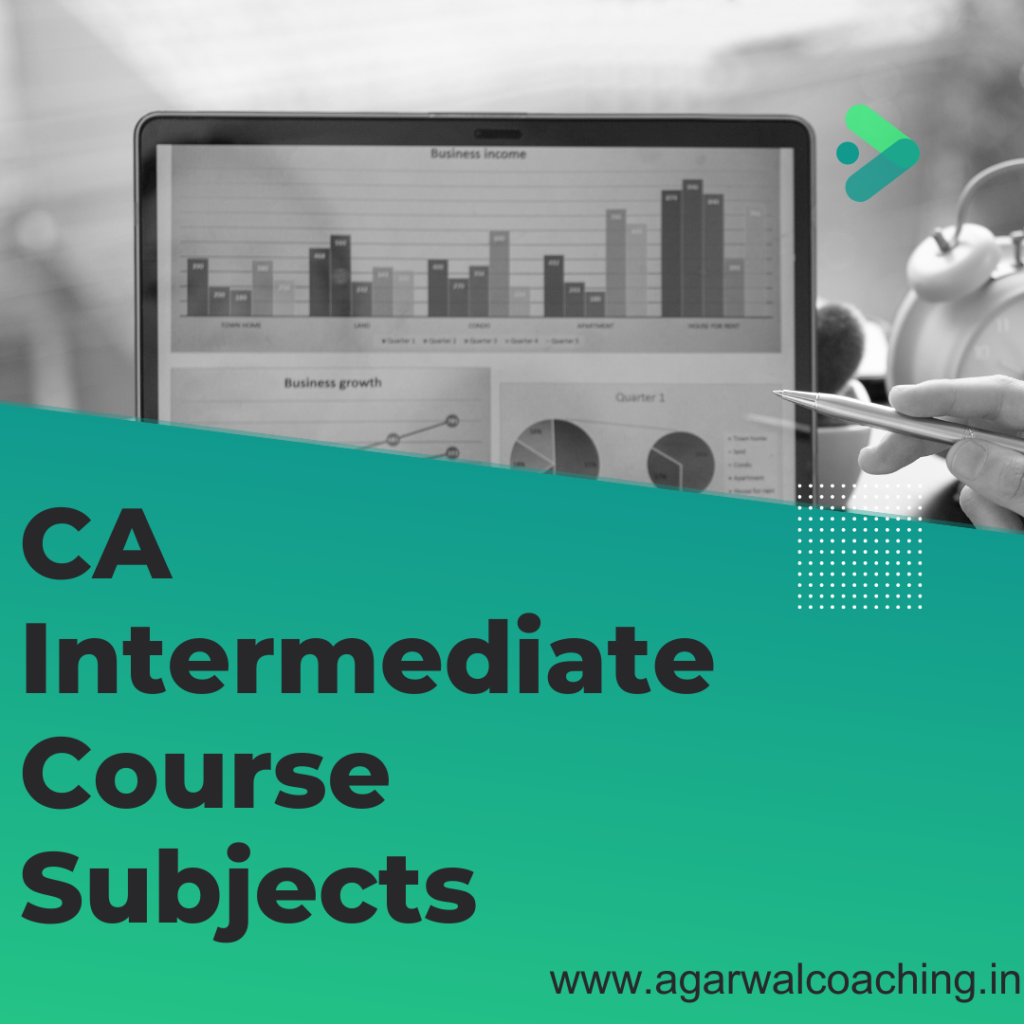
Introduction
The Chartered Accountancy (CA) Intermediate course is an essential phase in the journey towards becoming a qualified Chartered Accountant. It builds on the foundational knowledge acquired in the CA Foundation course and delves deeper into advanced subjects that are crucial for financial experts. In this blog, we will explore the subjects included in the CA Intermediate course, providing aspiring CAs with a comprehensive overview of the diverse and exciting areas of study.
1. Group I Subjects
The CA Intermediate course is divided into two groups, with each group comprising Three subjects. Let’s start by looking at the subjects included in Group I:
I. Advanced Accounting: This subject delves into complex financial reporting, including accounting for amalgamations, consolidation, and foreign branches. Candidates will also learn about accounting for financial instruments and insurance contracts.
II. Corporate and Other Laws: This subject covers corporate laws, including the Companies Act, 2013, and other applicable laws related to the corporate sector. Candidates will also learn about the essentials of the Securities Laws and the Competition Act.
III. Taxation: Candidates will explore both direct and indirect taxes, including the Income Tax Act, 1961, and the Goods and Services Tax (GST). This subject is vital for understanding taxation laws and compliance in the financial world.
Section A -Income -tax Law
Section B – Indirect Taxes
2. Group II Subjects
Moving on to Group II, the subjects included in this section further enrich the candidate’s financial expertise:
IV. Cost and Management Accounting: Focusing on cost management techniques, budgeting, standard costing, and decision-making tools, this subject equips candidates with the knowledge to make informed financial decisions.
V. Auditing and Ethics: Candidates will gain a comprehensive understanding of auditing principles and techniques. They will learn about the audit process, risk assessment, internal control evaluation, and audit of different entities.
VI.(A). Financial Management :This subject equips candidates with financial management tools and techniques, including capital budgeting, working capital management, and capital structure decisions. In Economics for Finance, candidates will study economic concepts related to financial decisions.
VI.(B). Strategic Management: This subject covers information systems, including topics like system development life cycle, e-commerce, and enterprise resource planning (ERP). Additionally, candidates will explore strategic management concepts, including strategic planning and implementation.
Conclusion
The CA Intermediate course subjects provide a comprehensive and diverse knowledge base to aspiring Chartered Accountants. Through these subjects, candidates gain expertise in accounting, auditing, taxation, financial management, and other specialized areas. The course equips them with the necessary skills to excel in the competitive financial landscape and make informed decisions in complex financial scenarios. With dedication and diligent study, candidates can navigate the realm of financial expertise and prepare themselves to progress to the final level—the CA Final course—ultimately realizing their dream of becoming a qualified and esteemed Chartered Accountant







